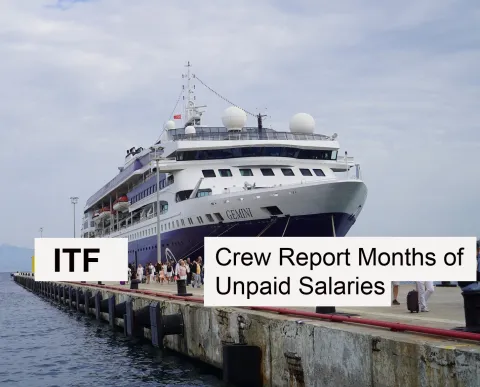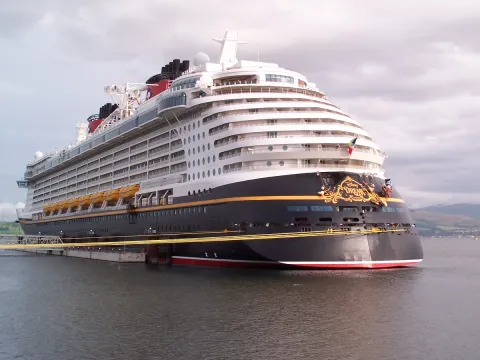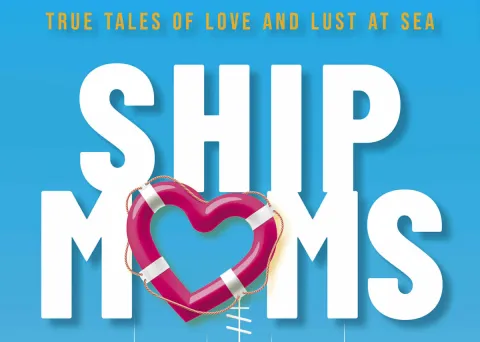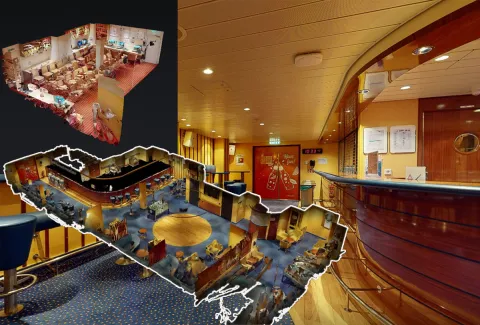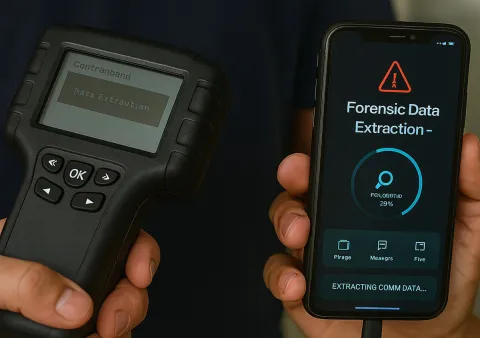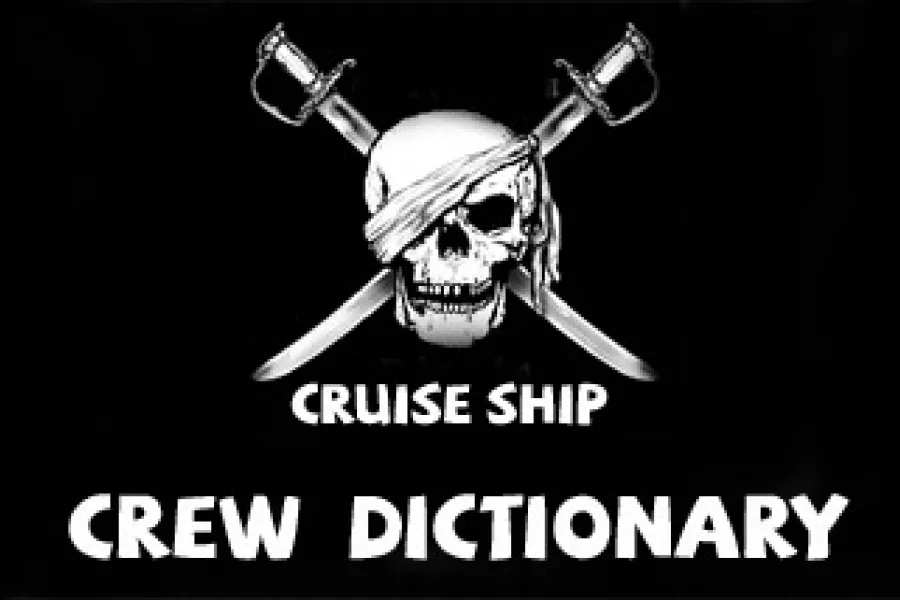
Here are the most common words used by crew members working on a cruise ship. Crew members live and work on cruise ships and create their own unique environment, as well as cultural expression. The fact that one cruise ship may have more than 60 different cultural nationalities, may force the same to create their unique little society and culture. Therefore, crew members have their own unique words which they use every day. Most of the words are an infusion of Italian, Filipino, Jamaican, Spanish, and Balkan as well as other linguistic origins. People who have boarded a ship at least once may have heard these words among crew members in the cruise industry and now for the first time, we are revealing this amazing vocabulary. For the first time here we are presenting the meaning of those words.
- Aft - The rear of the ship.
- A la cartuch – excellent
- Azipod - a registered name for a propulsion system using propellers connected to electric motors in a steerable pod.
- Babalu - A fool.
- Batty man - sexual slurs used to describe gay, bisexual. The term is a Jamaican Patois abbreviation of the word bottom into batty; "batty boy" is a cognate of the American English "butt boy".
- Barko - means a huge ship... Filipino term for ships (cruise ship, tanker, etc)
- Bomboclat - Jamaican expression meant to convey shock or surprise
- Some examples: "Guest give me $200 tips!"BOMBOCLAT!"
- Boat drill - At the beginning of every cruise, crew and passengers must perform a mandatory lifeboat drill. The crew performs additional Boat drill once a week.
- Bow - The front of the ship.
- Bridge -The control center of the ship.
- Burro - "mobile side stand". Waiters use it on the ship to store dirty plates. On Spanish means donkey
- Culo - means Buttocks or bum in Spanish.
- Culero - means asshole in Spanish. In Salvadorean slang, it is a vulgar term for a male homosexual.
- Cheapatone - A dirt cheap guest; a guest who does not spend money on services.
- Che Fache - an expression used by the Romanian crew to ask "what's up."
- Chi Chi man - a term for a homosexual. (Caribbean slang)
- CD - Cruise director.
- Decks - Floors of the ship
- Departure - The time when the ship leaves a port.
- Formal Night - The designated evening when guests dress formally for dinner.
- F&B - food and beverage.
- Gordo - a big and round person; an overweight guest.
- Gangway - The entrance/exit area of the ship used while docked.
- Galley - the ship's kitchen.
- GI – gastrointestinal illness is also known as norovirus, most common virus on cruise ships.
- Steward - responsible for maintaining passenger cabins - Cabin Steward. responsible for maintaining Galley – Galley Steward.
- The Shirts - Ship’s officers, who are noted for their rich and complex fashion sense.
- Sign off - to leave the ship when your contract is over.
- Starboard Side - The right side of the ship when facing the bow
- Itinerary - The schedule of ports for a specific cruise.
- Tender - A ferry that transports passengers from the cruise ship to the dock when the ship cannot be accommodated at the port facilities.
- Troso - timber; a log of wood; most commonly used on ships for crew/guests who do not learn or understand fast enough or have a lack of common sense.
- Knot – One nautical mile per hour.
- Mamagaio - Is crew member on duty using his working time to activities that have nothing to do with work, indeed. It's killing time, get high, take a flight. All this, of course, without your boss finding out. Comes from Tagalog (language is spoken in the Philippines)
- Mamacita - refers to a “babe” or a real sweet chick. It’s a very common pick-up line. The literal meaning is "little mama;"
- Maitre D' – Restaurant manager in charge of the dining room and its wait staff.
- Myuzo – Cruise ship Musician
- Master – Captain of the ship
- Mambruko - Idiot
- Master station – Assembly place where a person goes during an emergency.
- Midships - Middle of the ship.
- Paddock - buffet restaurant, A paddock in Australia is a field where grazing can take place all day.
- Paisano - means countryman or brother in Italian. The equivalent of "homie" to Italians and Italian-Americans. Italian, usually said in reference to 'buddy, friend, mate'. People from the Dominican Republic use that word as a slang. It is used when there's a good friendship among two men, never if you do not know that person.
- In The Caribbean instead of using the whole word, they just use part of it: "Paisa", and as a slang word.
- Papi – Means old man. Nowadays at least – more used to say “darling” or “sweetheart”, in most parts of Latin-America.
- Pare – Tagalog language. It is short for kumpadre, meaning 'friend.'
- Port Side - The left side of the ship when facing the bow
- Port manning - as per Maritime law, a ship is required to keep a certain amount of crew on board while docked. The crew that is port manning can't exit the ship in particular port.
- Rasta man - a male Rastafarian; a cultural expression for people who are living the rastafarian way of living such as hair in dread locks and so on.
- La Ge Ge - Very behind, Late.
- I-95 - The main crew hallway on a ship. It runs up and down the length of the ship.
In the comment box bellow please add other words used by cruise ship crew.
Crew Insights
Articles and experiences shared by crew members working on cruise ship. Find out more about ship life at sea together with tips and advices for first time crew members and cruise oldtimers.







